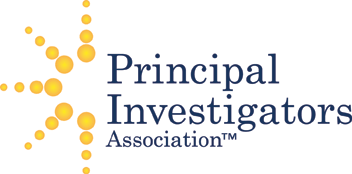No. 131: Combating Interruptions for PI’s
Do you get interrupted all day long?
Roughly every eight minutes, someone or something stops the average PI in her tracks, according to Don Wetmore of The Productivity Institute. Here are five techniques that can help improve the situation.
| Check out our infographic here: Stop Those Pesky Interruptions: An Infographic for PI’s |
1. Establish a log
One successful time-management technique is to analyze your interruptions. That means getting a notebook, and logging who did it, the reason, how long it took, and how long it took you to get back on task.
At the end of the week, “tag” each interruption according to a formula — high-priority, average, low and worthless. Expect to learn that 80 percent of your interruptions are low priority or worthless. That should add up to an hour per day of savings — if you just say no to them.
This is a great idea, and it works — as long as you do it. But it also presents some challenges:
- For at least one week you double your interruptions: the time for the interruption, plus the time to log it.
- PIs tend to question assumptions, so you likely will take more time wondering about a taxonomy that doesn’t address why something has become such high-priority. It was smoke last week, but now it’s a brush fire. Consequently, you wonder what counts as a “worthless” interruption.
- It doesn’t address internal interruptions and your own distractions.
3. Become aware of self-distractions that interrupt your work
You can lose a lot of time both following the distraction and regaining focus. Intrusive thoughts are a big interrupter and energy-drainer.
“Even the most disciplined PIs will not focus completely on a task for a full eight-hour day,” says Russell. “And it’s not reasonable to expect you will.”
Example: The highest priority is to finish your grant application. But three of your best students need letters of recommendation and so does a colleague. You have a meeting to prepare for, and there’s a conference presentation coming up. As you collect the data for your application, your thoughts interrupt you about each of these other tasks.
Suggestion: Plan and schedule blocks of time to accomplish each of these tasks. Setting aside specific time for the assignments should settle your mind and lead to a stronger focus on the task at hand because you know when you’ll handle these other issues.
4. Ask if you’re susceptible to perfectionism
Most PIs find attention to detail is what got them where they are. You can lose time, however, if you make “the perfect the enemy of the good.”
Example: “You have X, Y and Z tasks for the day,” explains Russell. “Say X is a report, and you like to write in the morning. You find that you want to express something in a certain way, and you’re having trouble finding the words. You keep at it until you’ve exceeded your scheduled time.”
Suggestions: Decide how much time you will work on it, and stick with it. If you find yourself hung up on words or a single aspect of the project, add it later on in your schedule, if possible. This will keep you on your timetable, but more importantly, it will help you avoid Y and Z from becoming high-priority tasks the following week.
5. Remember boundaries, choices and habits
How much you get interrupted ultimately boils down to setting boundaries, choosing to honor those boundaries, and reinforcing habits that arise from repeating those choices. With repetition, you will automatically think about what constitutes a boundary-breaking interruption, and that the next thing you do is a choice.
Example: “You are a morning person and set a boundary that you won’t answer the phone from 8 a.m. to 10 a.m. unless it’s a family member or your boss,” explains Russell. “That should free you up to finish your report. But if someone calls, and it’s not important, you can choose to either honor the boundary and ask them to call back. Or you can give yourself a five-minute break to handle it.”
Suggestion: Choose to honor the boundaries (as much as possible) until you are in the habit of setting aside uninterrupted time and not getting distracted. One way to determine if you should break a boundary is to ask yourself the following questions:
How important will this be in a week, a month, a year or five years?
- What will the impact be if I answer this e-mail or take this call?
- How long will it take?
- How long will it take me to get back to what I was doing before?
Sources: Janice Russell, certified pofessional organizer in chronic disorganization at Minding Your Matters in Cary, N.C., www.mindingyourmatters.com, 919-467-7058; Don Wetmore, The Productivity Institute in Stratford, Conn., www.balancetime.com, 203-386-8062.
To receive educational articles like this one, sign-up today to PIA’s free bi-monthly eNewsletter “Science Pro Insider”!
Science Pro Insider is the only eNewsletter that focuses 100% on the managerial aspects of your lab operations and your science career. It shows you how to easily manage your lab better and faster, and provides easy-to-apply expert tips, shortcuts and best practices so you can focus on the research you’re doing right now. Subscribe today!
Comments (0) | Read More...






